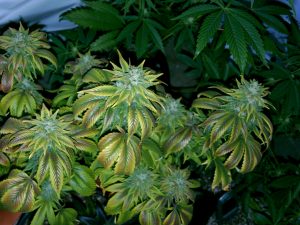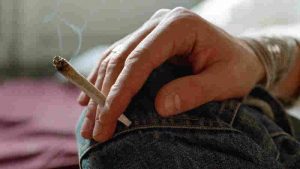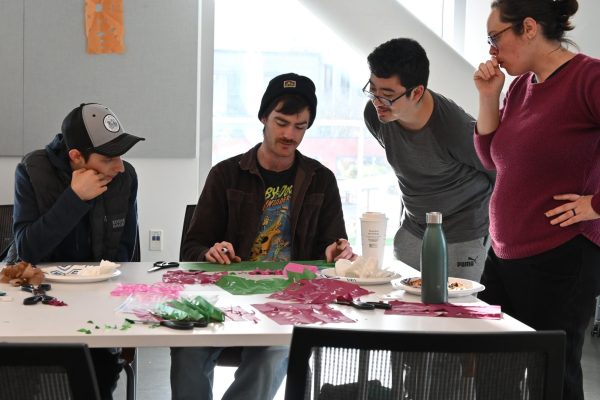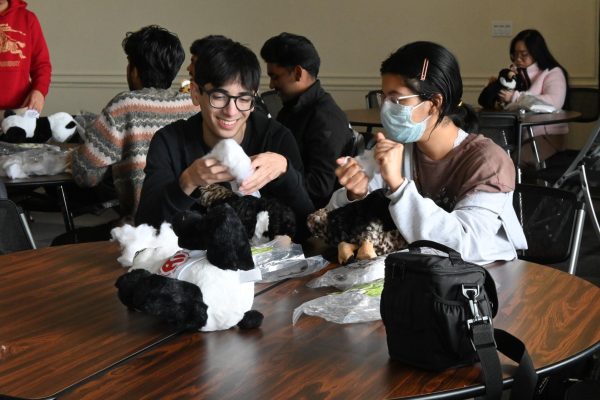California cannabis to be lab tested

2015 redesigned Pioneer logo.
New regulations will set standards for marijuana
Lab testing cannabis products is not currently required, it’s voluntary. Even if a product is found to be contaminated, it can still make it’s way into dispensaries to be sold, bought and consumed.
This has been a problem in California because regulations about the quality of cannabis products being sold for consumption vary from city to city. Oakland, Richmond, San Jose and Berkeley are the only Bay Area cities to currently require cannabis products to be lab tested. Out of these four, Berkeley has the strictest regulations regarding lab tests.
Since the passing of Prop. 64 in November 2016, there has been more discussion about the quality, cleanliness and safety of California’s marijuana. According to two laboratories testing cannabis products that The Pioneer spoke to, Harrens and CW Analytical, about 60 percent of cannabis products coming into laboratories are tested postive for some type of contaminant.
This summer, the California state legislature passed Senate Bill 94, the Medicinal and Adult-Use Cannabis Regulation and Safety Act (MAUCRSA). Under the act, there is now one regulatory system for both medical and recreational cannabis. One of the regulations for cannabis under this bill is that accredited laboratories are required to inspect and test all cannabis products for quality assurance and consistency.
“The analogy is that you have basic regulations of what kind of meat that can be sold, but some people want the assurance that it’s organic,” Larry Kamer, spokesperson for United Patients Group (UPG) told The Pioneer. “A lot of patients want to be able to see that there’s an independent outlet that’s only looking out for them. That doesn’t have a profit motive involved.”
The UPG provides solely to the medical cannabis industry and their patients. They are a resource and advocate for patients who use cannabis as part of their treatment. In April 2017, UPG began their Seal of Approval organization, which sets high standards for quality, safety and ethics for medical cannabis products, companies and organizations.
In January 2018, California will begin to issue commercial cannabis licenses. So companies who are trying to sell their cannabis products legitimately in 2018 were waiting to see emergency regulations regarding the specifics about lab testing. Emergency regulations were just published on Nov. 16 and now companies can proceed with their preparation for the new year.
Both Harrens and CW Analytical laboratories provide their customers with a variety of services depending on the type of product. They can test the cannabinoid profile which measures compounds like THC and CBD levels. They can test for different terpenes, which are what gives cannabis it’s distinct smells. They can test edibles for potency levels and nutritional facts.
They can also test cannabis for microbiological contaminants, like yeast, mold, and e coli. These types of contamination can happen because of unsafe or unsanitary handling of the product.
Traces of pesticides and fertilizers are often found in California cannabis products, and is one of the most common reasons those products fail inspection. Jenny Young, an administrator at Harrens laboratory, told The Pioneer that one of the most common pesticides being used in cannabis cultivation is myclobutanil. Young explained that Myclobutanil is a fungicide that growers use to keep plants free from mildew and rot. This fungicide is used on other California crops like grapes.
According to an NBC Los Angeles article written in February, the problem with myclobutanil being used for cannabis crops is the heat that’s applied when users smoke their weed. When heated, myclobutanil produces hydrogen cyanide. Hydrogen cyanide is a toxic chemical for human consumption.
“It’s crazy to see all the things that go into the making of cannabis products,” Young told the Pioneer. “There’s a lot that we really need to educate the community about for everybody to know what it takes for a product to go from being grown to on the self.”
Education is another service that labs offer their customers. Its crucial for the safety of consumers and the reputation of businesses. However, state regulations are only going to be the baseline standard for the quality of cannabis.
Lab testing products isn’t a new concept in the cannabis industry. CW Analytical is a lab that has been testing cannabis since 2009.
“The market has policed and regulated itself,” Emily Richardson, vice president of business development at CW Analytical said. “Enough people saw the need and value of the information.”
Consumers and companies value high quality cannabis whether its potency level, or cleanliness. Richardson told The Pioneer that even without state regulations there has been a decrease in amount of cannabis failing pesticide testing.
The benchmark of cannabis products being marketed and sold to the public is about to be raised. For companies already lab testing and holding their goods to a high caliber, the new regulations shouldn’t be too much of an issue. Those that are not, risk not being able to sell their merchandise in dispensaries in 2018.









